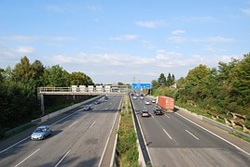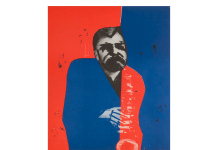Amid a series of legislative victories this session for Gov. Jerry Brown stands a proposal that was not as high profile as others but in many was equally as important.
After stripping out a key portion of Senate Bill 350, Brown convinced a group recalcitrant moderate Democrats to vote for the climate change bill.
But he was unable to get any traction on a transportation proposal that calls for a $3.6 billion increase in annual state transportation spending, including $400 million per year for public transit, 1.6 billion a year for state highway repairs and $1.15 billion per year for local streets and roads.
Republicans object to the manner in which Brown proposes to pay for his plan: the governor wanted to increase the diesel and gasoline taxes and tack on a new $65 fee for vehicle owners.
Lawmakers left Sacramento on Sept. 11, dashing any hopes for passage of a meaningful transportation bill.
The inaction on transportation leaves Culver City Public Works Director Charles Herbertson more than a little disappointed, given the seriousness of the state’s infrastructure needs.
“I was certainly hopeful that this would be the year that the legislature would address the shortfall in funding for local streets and roads,” Herbertson said. “It’s really a case of ‘pay me now or pay me later.’ And the amount we pay later will be exponentially higher if we continue to ignore the deteriorating condition of California’s local streets and roads.”
Herbertson referenced a 2014 needs assessment report on the condition of California Streets and Roads that shows that California, in his words, “is on the edge of a cliff when it comes to the road network.”
The needs assessment stated: “In the next 10 years it is estimated that the local system will have a $78.3 billion funding shortfall. Existing funding for California’s local streets and roads is just $1.7 billion annually but $3.3 billion is needed just to maintain the current statewide average rating of 66. However it would take $7.3 billion annually to bring the state’s local streets and roads into a safe and reliable condition,”
“I support the governor’s proposal.” Herbertson said. “Overall I think it is a fair and balanced approach that would have significant benefits for the state.”
Herbertson also believes that that increasing funding will not happen without some form of tax or fee increase or a combination of both. “There is no free ride and shifting money from other sources is not likely to work,” he said.
League of California Cities Executive Director Chris McKenzie said the governor’s proposal “represents a balanced compromise and incorporates some of the best ideas from a number of California legislators and stakeholders.”
Herbertson said continuing to defer needed maintenance will result in increasing backlogs, deteriorating conditions of roadways throughout the state and increased costs to address the growing backlog. “All of this could have significant economic affects in the future as the condition of local roads can impact commerce, property values and safety among other things.
One bright spot, Herbertson said, was transportation needs “floated to the surface and is receiving the attention it deserves. Hopefully a compromise will be reached to find a way to increase funding in the future.”
Gary Walker contributed to this story.














